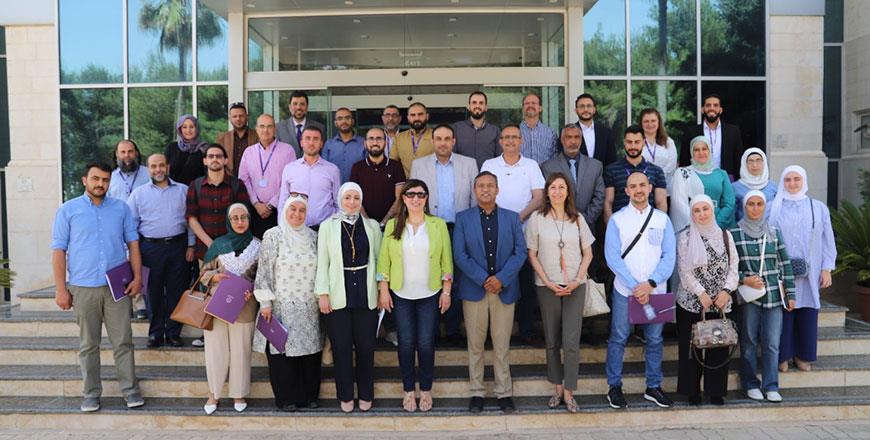
Forum Calls For Implementing Circular Economy Principles To Open New Markets For Jordanian Products
AMMAN — Experts representing local ministries, international organisations and academic institutions have called for the application of circular economy principles in the food industries in Jordan.
This would reflect positively on product quality and increase competitiveness to open new markets for Jordanian products, according to a Royal Scientific Society (RSS) statement made available to The Jordan Times.
During their participation in the first forum on introducing circular economy measures to Jordanian food industries, which was hosted by the RSS, the experts presented a detailed explanation to introduce the concept of the circular economy and industry 4.0 tools to food factories, decision-makers, and regulatory and governmental bodies, which is basically based on the protection of natural resources and the application of the resource efficient & cleaner production methodology.
According to the statement, the forum is part of an applied research project on the green economy and efficient and cleaner production of resources, funded by the Newton Khalidi Fund at the British embassy and implemented by the Water, Environment and Climate Change Centre at the RSS.
The Vice President/Executive Director of Sustainable Solutions at the RSS, Rafat Assi, emphasised during the opening of the two-day forum the need for local industries to adopt cleaner production methodologies and principles of circular economy. These steps would serve to preserve natural resources on one hand, and increase competitiveness and open up new markets for Jordanian products on the other hand.
The representative of the Ministry of Environment, Maha Alma'ayta, presented the ministry's strategy towards green growth in all sectors in the Kingdom.
Fawaz Shakaa from the Jordan Chamber of Industry provided an overview of food industries sector in Jordan, along with its most important challenges and opportunities.
The Principle Investigator (PI) of the project and Director of the Water, Environment and Climate Change Centre, Almoayied Assayed, gave a presentation on the project, its importance and its logical framework.
The CEO of Decapolis, Abdul Rahman Habashneh, highlighted the importance of using Blockchain technology to track the savings in water, energy and raw materials associated with the application of the cleaner production methodology and the significant role that this technology can play in opening new markets for local products and increasing competitiveness.
The forum included scientific seminars presented by Vikas Kumar from the University of the West of England in Bristol, the academic partner of the project, and Anna Tari, President of the international Institute of Circular Economy, who gave a detailed explanation of the concept and principles of circular economy in the food industry and highlighted the importance of integrating industry 4.0 tools into the concept of resource efficient cleaner production.
The forum's activities included presentations from specialists in Cleaner Production Unit and the Climate Change Division of the RSS who delivered a detailed explanation of the methodology of resource efficient cleaner production, and carbon footprint of food products and their significant role in achieving the concept of circular economy, achieving environmental sustainability and market competitiveness.

Legal Disclaimer:
MENAFN provides the
information “as is” without warranty of any kind. We do not accept
any responsibility or liability for the accuracy, content, images,
videos, licenses, completeness, legality, or reliability of the information
contained in this article. If you have any complaints or copyright
issues related to this article, kindly contact the provider above.

















Comments
No comment